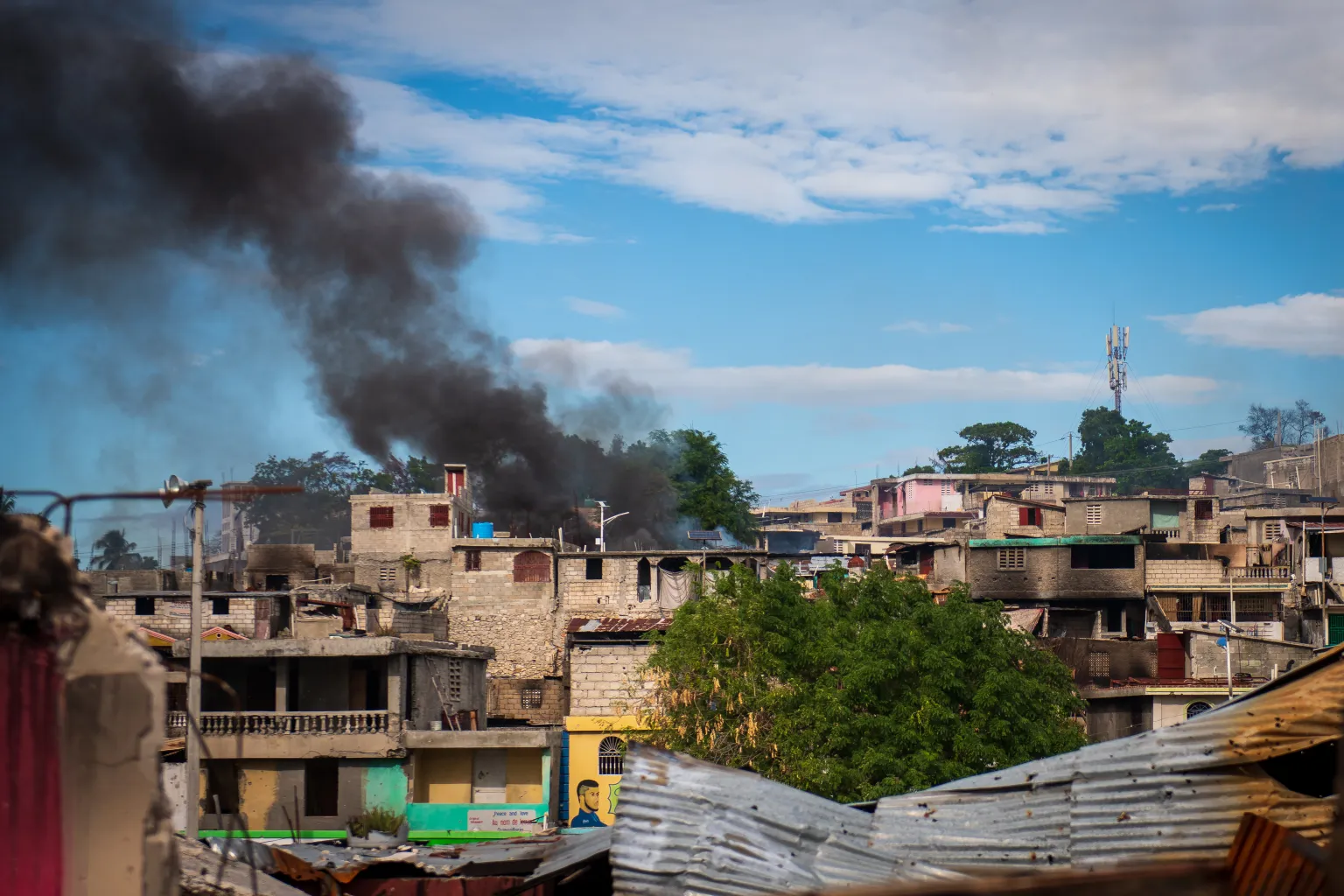International
Trinidad and Tobago Declares State of Emergency Amid Surge in Criminal Activity

The Government of Trinidad and Tobago announced on Monday that the country has been declared in a state of emergency due to the increase in criminal activity.
The declaration was made by President Christine Kangaloo on the advice of Prime Minister Keith Rowley, in response to the escalation of criminal activity that poses a serious threat to public safety, in accordance with the country’s Constitution.
The country has recently witnessed a rise in gang-related violence. In one incident, five people were killed in an attack in Laventille, a suburb of the capital city, Port of Spain, local media reported.
International
Claudia Sheinbaum: Operation Against ‘El Mencho’ Was Based on Pending Arrest Warrants

Mexico’s President Claudia Sheinbaum on Wednesday rejected claims that the military operation that resulted in the death of Nemesio Oseguera Cervantes, known as “El Mencho,” leader of the Jalisco New Generation Cartel (CJNG), was carried out under pressure from the United States government.
Sheinbaum explained that the deployment of federal forces was aimed at executing outstanding arrest warrants against Oseguera Cervantes, who was considered one of the most wanted criminals in both Mexico and the United States.
“That was not the objective (to ease pressure from the United States). It is very important, and I want to repeat it. This individual had an arrest warrant, or several,” Sheinbaum said, referring to the operation conducted on February 22.
According to the president, the initial goal was to capture Oseguera Cervantes, but military forces responded after coming under attack during the intervention.
“The operation was to detain him. The problem is that they were attacked — the Secretariat of National Defense — and they responded at that moment,” she said.
The president insisted that the action was not carried out in response to external demands, although she acknowledged intelligence cooperation with the United States.
“It was not done in any way because of pressure from the United States, not at all. Of course, there was intelligence information from the United States that was used specifically,” she concluded.
International
Spain Denies Any Agreement to Cooperate with U.S. Military in Iran Operations
International
White House Says Spain Agrees to Cooperate with U.S. Military After Trump Threatens Trade Embargo

White House Press Secretary Karoline Leavitt said Wednesday that Spain has agreed “in recent hours” to cooperate with the U.S. military, following President Donald Trump’s threat to impose a trade embargo on Madrid.
Trump had warned of potential commercial measures after Spain reportedly refused to allow the Pentagon to use facilities at Spanish military bases for operations related to Iran.
“With respect to Spain, I think you heard the president’s message yesterday loud and clear, and I understand that in recent hours they have agreed to cooperate with the United States military,” Leavitt said during a press briefing.
She added that the U.S. military is currently coordinating with its counterparts in Spain. However, the president expects broader support.
“The president expects that all of Europe, all of our European allies, of course, will cooperate in this important mission — not only for the United States, but also for Europe,” Leavitt said.
Her remarks came in response to questions about Spain’s position and its role as a U.S. ally amid rising tensions surrounding operations involving Iran.
-

 International4 days ago
International4 days agoIran Reports 201 Dead, 747 Injured After U.S. and Israeli Strikes
-

 International3 days ago
International3 days agoBrazil’s Supreme Court Rejects Bolsonaro’s Bid for House Arrest
-

 International3 days ago
International3 days agoAnti-ICE Billboard Campaign Targets Immigration Spending in 31 U.S. Cities
-

 International2 days ago
International2 days agoSpain’s Prime Minister to Address Nation Amid Trump’s Trade Threats
-

 International4 days ago
International4 days agoPope Leo XIV Urges End to ‘Spiral of Violence’ in Middle East
-

 Sin categoría5 days ago
Sin categoría5 days agoTrump: ‘We Think It’s True’ Amid Claims Iran’s Supreme Leader Was Killed
-

 International5 days ago
International5 days agoSecurity Council to Hold Emergency Meeting on Middle East Crisis
-

 International3 days ago
International3 days agoTrump Warns of ‘Major Wave’ of Attacks as Iran Conflict Escalates
-

 International22 hours ago
International22 hours agoWhite House Says Spain Agrees to Cooperate with U.S. Military After Trump Threatens Trade Embargo
-

 International3 days ago
International3 days agoMexico Calls for Immediate Probe After National Dies in ICE Custody
-

 International2 days ago
International2 days agoNew York Announces First 2,000 Seats in Universal 2-K Program
-

 International22 hours ago
International22 hours agoSpain Denies Any Agreement to Cooperate with U.S. Military in Iran Operations
-

 Central America22 hours ago
Central America22 hours agoNicaragua Held Responsible for Harassment of Opposition Prosecutor and His Family
-

 International3 days ago
International3 days agoBolivia Orders Three Investigations Into Deadly Military Plane Crash
-

 International2 days ago
International2 days agoWarner Bros. Developing First ‘Game of Thrones’ Movie With ‘Andor’ Writer
-

 Central America3 days ago
Central America3 days agoPanama Canal Monitoring Trade as Middle East Conflict Disrupts Shipping
-

 Central America2 days ago
Central America2 days agoGuatemala’s Attorney General Fails in Bid for Top Court Seat Amid Corruption Allegations
-

 International22 hours ago
International22 hours agoClaudia Sheinbaum: Operation Against ‘El Mencho’ Was Based on Pending Arrest Warrants





























